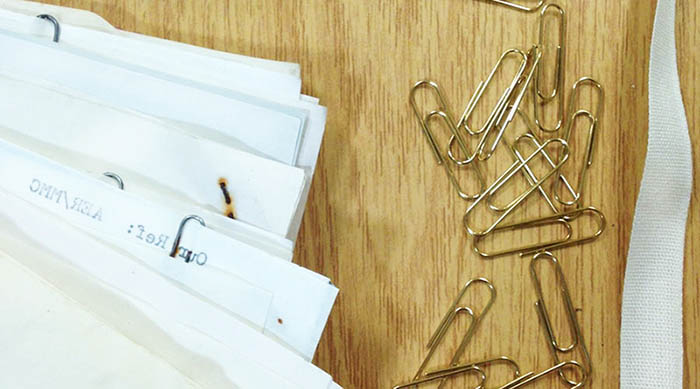Hi, I’m Sophie, an archivist at Harrods Company Archive. When TownsWeb Archiving invited me to write a guest blog post about digitising archive collections, I immediately thought of the digitisation project that I am working through in my current role. I’d love to tell you that it has been a well-organised project with a clear scope and timescale; however, pressures in time and finances have meant that it has not quite worked out in such an organised fashion.
For any good project, the key to success lies in the planning and preparation, and so, armed with the benefit of hindsight and my experience of digitisation so far, I’d like to share with you a few points for consideration.
What are you digitising?
Understanding the material which you intend on digitising is, in my mind, the single most important factor in a digitisation project.
Knowing that you are digitising, say, a run of catalogues or a collection of photographs is not enough; it is crucial to understand the collection, and one of the ways in which you can do so is to ask yourself questions such as: What is the volume? How many boxes are there? How many pages are there in the catalogues? Are there any torn pages? Are there rusty staples or paperclips that need removing? How many photographs are there? Are the photographs experiencing chemical decay? Are any photographs stuck together?
An effective and efficient digitisation project requires an initial assessment of the material designated for digitisation, which will provide a clear indication of the volume of material, any items which require extra care or conservation, and any preparatory work involved to ready the collection for digitisation. Asking these questions and carrying out an assessment will indicate the scope of the project and enable you to start developing your plan.
Why are you digitising?
Digitisation projects can be costly, time-consuming and a burden on resources; some archives may be required to bid for funding or put forward a proposal to their organisation in order to get the green light to digitise their collections. It is important, therefore, to ask yourself why you are considering a digitisation project. Are the materials at risk of decay or loss? Are they particularly valuable to your organisation? Are they regularly accessed? Are digital versions required for a project or to enable greater access?
Understanding the rationale behind the digitisation, together with your aims and outcomes for the project, will help in the development of funding bids and project proposals. Additionally, if digitisation is required for a particular future organisational or external project (such as an anniversary or centennial), a thorough understanding of this rationale will enable you to plan the required project outputs and a suitable timescale to meet the needs of the project.
Who is digitising?
There is no one-size-fits-all method of digitisation. Different materials can require different digitisation techniques and digitisation can be carried out either in-house using scanners or cameras, or externally by sourcing an archival digitisation specialist. Your initial assessment of the material designated for digitisation will have identified the different formats and potential issues they may pose, and this information will help guide you in identifying the method of digitisation which is appropriate for the materials that you have.
If the digitisation work is to be carried out in-house, then those carrying out the work must be well-grounded in the various handling techniques for the material and in using the photographic and computing equipment. If you are using volunteers or archive staff to carry out the digitisation then it may be sensible to plan training sessions in advance of the project, to ensure that everyone is thoroughly briefed on their role before the project starts.
If the digitisation work is to be carried out by an external archival digitisation specialist, I would strongly advise investing time in researching the options available to you and getting to know the company you choose to work with. A good working relationship will thrive if everyone involved understands the scope and goals of the project.
How will you store the digitised material?
My mantra is "digitisation does not equal digital preservation". Digitisation should not be thought of as an easy go-to solution in response to issues of access and preservation. After digitisation, the physical material should not be relegated to a box and forgotten about, and likewise the digital files resulting from digitisation will require processes of on-going management into the future to ensure their long-term preservation, accessibility, and integrity.
The archive must be able to support the incoming digital file formats and the storage space required to contain the files; in the present day and into the future, and just as I have recommended spending researching your digitisation options, I would also recommend spending time researching appropriate file formats for your materials and your company’s digital plans. It is essential for your organisation to be on-board with your plans and be able to support your digital requirements.
More digitisation project planning advice
Taking time to think about the what, why, who, and how of your digitisation project are essential tasks in preparing for a digitisation project. I do not intend this post to be an exhaustive list of points for consideration, but some thoughts that I have been reflecting on. Ryan Kyle’s Best Practice Tips for planning digitisation projects has a top ten tips for organising your digitisation project planning workflow, so - when you’ve thought about the what, why, who and how - why not check out his tips and start preparing for your next great digitisation project.





 USE OUR ONLINE
USE OUR ONLINE








